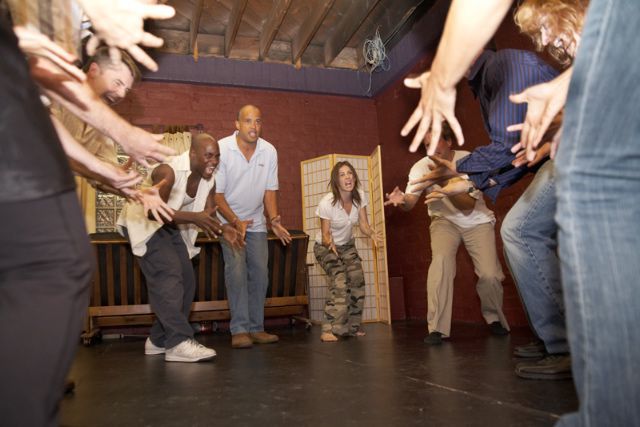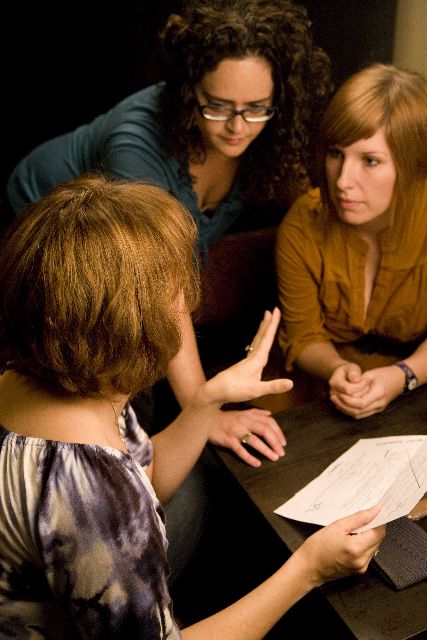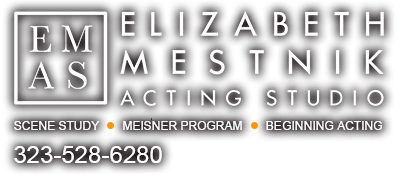With all of the different options for actor training, it’s sometimes difficult to navigate all the different schools and classes, techniques and approaches. Even for the experienced actor, finding the right place to study can be challenging, and sometimes downright discouraging. There are a million types of classes, Scene Study, Meisner Technique, Movement, Improv, etc. So let me break down some simple distinctions that could help you find the right acting class in Los Angeles.
- Technique class:

A technique class is the best place for beginners to start. It’s also a great place for experienced actors to return to when they need rejuvenation. It is a class that emphasizes acquiring skills rather than putting together a performance. All the exercises should help the students develop a character and perform a scene, but the emphasis is on developing the skill itself. Skills such as how to:
- Break down a script
- Create the environment
- Work off of your acting partner
- Tap into your creativity and imagination
- Strengthen your voice and physicality
- Develop a character
- Learn who you are and how to bring yourself to your work
These are just a few of the skills an actor needs to master before they can deliver a fantastic performance. There are a variety of techniques that can get you these skills, Meisner, Adler, Hagen, Strassburg. The best technique classes do give you the chance to test these skills out in a scene or monologue, but the focus is on skill acquisition.
The most important thing is that a beginner NOT put the cart before the horse and hop into a Scene Study class too soon. That would be like someone who wanted to dance ballet being told to dance Swan Lake in the first class and then being told what they did wrong. A technique class is like learning the various steps. Learn the steps before you dance. Learn the skills before you act. And like ballet, you need to be patient; it takes time for us to acquire these skills. No one does a triple pirouette the first week. No one performs a moving scene that easily either. Avoid the 4-week workshop if you are looking for a good technique class. That is not enough time for this work to germinate. Nothing worth learning comes easily; make the investment to become a master of your craft.
Good training can access parts of the student’s creativity and talent they never even knew they had. Technique is the bowl that holds the actors talent for us to see. Without it the actor’s talent can escape like water through their fingers. The best actors, the Robert Duvalls, Meryl Streeps and Phillip Seymore Hoffmans, have dedicated years to studying technique to shape and release their amazing gifts.
2. Scene Study:

This is a class where students who already have some mastery of the above skill sets can put them to practice. You will be working on a scene, trying to get it to, what I call, “performance ready”. For this, it is very important that you have a good rapport with the teacher. I think it is important that the instructor have the ability to improve your technique in case you need it (to give you exercises or work on your instrument), but also work as a director so that you get used to working towards a result. If Technique Class is about process, then scene study needs to be about process and product. The format is pretty simple. Two actors prepare a scene. They perform it, at whatever stage of readiness it is in. The instructor gives coaching and directing, and may even work on specific issues. The actors rehearse the scene on their own, to bring back to the next class. It varies a bit, but for the most part – that is how a scene study class goes. Here are a few things to look for in a Scene Study class:
- You should work in every class.
- There should be more work than discussion.
- You should want to work with this instructor over a series of months, with different material, as it does take us some time to get to know how you work, what your weaknesses are and how to move you forward in your craft.
- Your classmates should be as committed to rehearsing outside of class as you are.
- The class should be no more than 4 hours long (ok, so this is pretty subjective, but I think that 4 hours is about the limit any creative person can stay alert, and work productively. I’ve heard of the classes that go until the wee hours of the morning – either the class is too large, the scenes too long, or the teacher likes to talk too much)
- Cold Reading/Audition workshops: Cold Reading is an audition technique that is particularly important in Hollywood, where you could potentially get the script you are working with literally moments before you go in to audition. These workshops are often taught by industry professionals (casting directors, agents etc.) One thing I need you to understand is that casting directors are not necessarily acting coaches, and so although they can often tell you what they want to see, they may lack the proper tools to get you there. That is why it is very important that you be very confident in your training before you put yourself in front of any casting director or agent (you don’t want to make a bad impression). If you don’t have your skill set completely under your belt, make sure your Cold Reading class is with a coach not a casting director.
There are a huge number of acting teachers and acting schools in Los Angeles, some are amazing and gifted, some are hoaxes and some are even abusive. Nonetheless, there ARE enough really insightful teachers out there who are passionate about training actors that you need not settle. There are a lot of things you do not have control over in this crazy business, but your craft is not one of them. Take control of it, master your craft, train, rehearse, and I hope to work with you soon!


